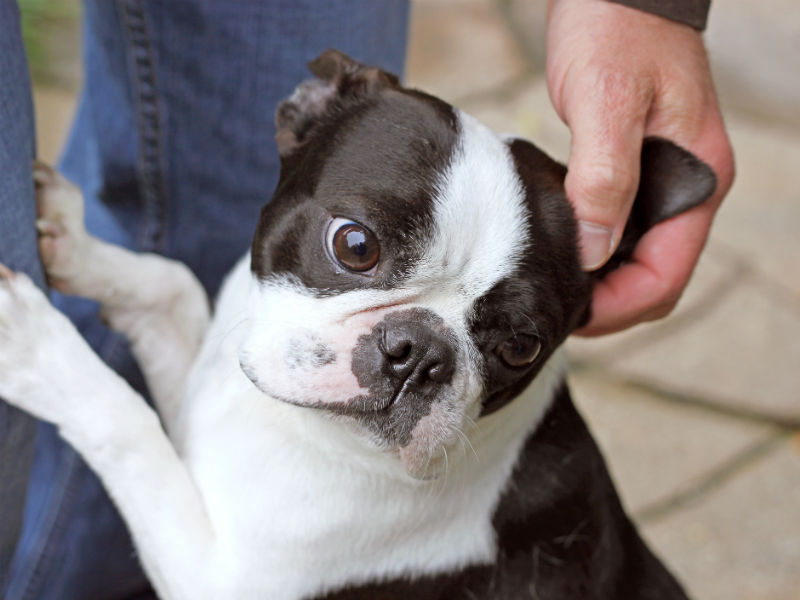Clubs Offering:

Feelings of envy and jealousy are common in social settings. You might say it’s the art of counting the other person’s blessings instead of your own. Some scientists don’t believe that dogs can feel these emotions.
A different view came from a dogsled racer I met outside of Dawson City in Canada. He was getting ready to harness his team, and they were milling around in a friendly, excited manner. I reached over to pet a handsome blue-eyed Siberian Husky, but the musher warned me off, saying: “If you pet one, you have to pet them all. They get really jealous. If they think that one of them is getting more of anything — affection, food, or whatever — they turn into green-eyed monsters.”
In all social situations there are inequities, and some individuals come out better than others when it comes to rewards. Scientists tend to separate emotions into two categories: primary and secondary. Primary emotions, such as fear, anger, disgust, joy, and surprise, are considered to be universal. Secondary emotions, such as guilt, shame, jealousy, and envy, are thought to require more complex cognitive processes. For example, in the case of envy, you have to actively pay attention to what the other individual is getting and compare it to what you are getting for your efforts. Although there are observations of clear cases of jealousy and envy in primates, such as chimpanzees and baboons, the argument has been made that it would be unlikely to find it in an animal like the dog because it involves self awareness at a level which, until recently, was doubted in dogs. However, people who live around dogs often observe it in their pets.
One commonly observed situation where jealousy seems to appear in dogs comes about because of the complex relationship between a mother dog, her puppies, and her owner. Unlike humans, a canine mother does not maintain the maternal instinct for her children for the remainder of her life. As soon as the puppies are able to survive on their own, her maternal instinct for the current litter wanes and is certainly lost by the time she goes into heat again.

Young puppies, of course, are very cute and cuddly, so it is natural for them to receive a lot of affection from the people in the house. More knowledgeable owners may try to treat all of the dogs in the household with equal care and attention, but usually this is to no avail. The mother dog sees her owner’s attention being diverted away from her toward the puppies and becomes jealous. She may begin ignoring the pups and trying to exclude them from the maternal nest. It is strange that behavioral scientists often ignore such commonplace observations.
However, some investigators are rethinking these social emotions. They accept the fact that dogs have a broad range of emotions. They then go on to note that dogs are certainly social animals, and jealousy and envy are triggered by social interactions. Furthermore, we now know that dogs also have the hormone oxytocin, which has been shown to be involved in expressing both love and jealousy in research involving humans.
Are Some Dog Breeds More Jealous?
Any dog can experience jealousy. While some breeds may be more likely to have separation anxiety or struggle with the instinct to guard their pet parent like a possession, jealousy is not limited to certain breeds. No current peer-reviewed research has been published that supports some dog breeds being overall more jealous than others.
Some signs of jealousy in dogs are obvious, while others may be a bit more subtle. Signs that your dog is experiencing jealousy may include:
Many situations can ignite feelings of jealousy in a dog—usually when your attention is being pulled somewhere else. Common reasons why dogs get jealous include:
Bringing home a new puppy or another adult dog can trigger jealousy in your dog, and they may show signs of aggression toward the new addition. Your dog might growl at the new dog, guard your lap, or try to get in between you and your new furry family member.
This could get worse when you show affection toward your new dog. This aggression may also be worse if the newly adopted dog is of the same sex, or the dogs have clashing personalities.
Your dog may feel that their place in the household is threatened and that the new dog will take all your love and attention, leaving less for them.
Inappropriate Toileting
Feeling jealous may cause inappropriate toileting. Peeing or pooping indoors can be frustrating, but this is a clear sign and a form of communication; Your pooch is jealous. Your dog can’t talk or write down what’s causing it stress or unhappiness, so it has to find creative ways to get your attention.
Important: While you shouldn’t rule this out as a sign of a health issue, in many cases it’s a behavioral issue you need to address.